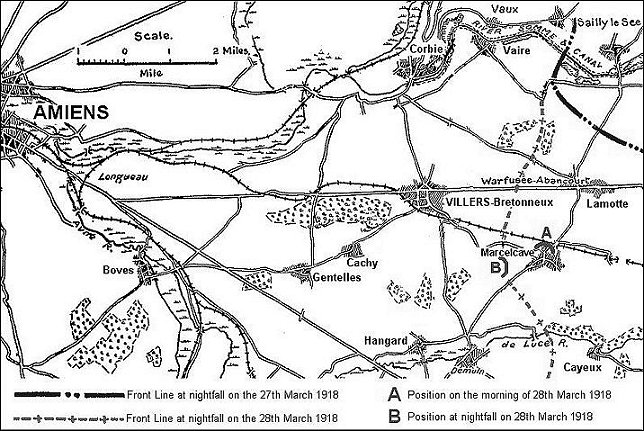Private William Reader Riley (26274) 2/8th Worcestershire Regiment - POW 1918
Private William Reader Riley (26274) 2/8th Worcester Regiment Home address: Place and Date of Capture: Nature of Wound:
I had no medical treatment until I got to Germany. A doctor saw me, but did no dressing. One of our own R.A.M.C. men a prisoner, dressed the wounds. He had the necessary things and extracted a piece of shrapnel out of my thigh. |
|
I was taken to a hospital in France, but do not, know the name of the place. I was not able to move. There were thousands and thousands of wounded Germans who came through the place. On the first and second days I had no food, but after that there was plenty.
We travelled to Germany in cattle trucks. We were travelling seven days altogether. We were put into sidings occasionally. Food was given twice a day, but it was not sufficient. It was just an existence. I was able to take the soup, that was all; the bread I vomited up again.
We had to sleep on wet straw on the floor. We had no attention front the German Red Cross. The R.A.M.C. man I have mentioned attended to me until he left us at Augsburg.
We arrived at Fürstenfeldbruck, near Munich, Bavaria, on the 1st April 1918 and were put into the reserve lazarette. We were not allowed to give this address, but gave the address “Lager Lechfeld” 16 miles away. The reserve lazarette was the hospital for the camp. It was a properly equipped hospital, but medicines were short. Medicine for malaria (quinine) was the only medicine they appeared to have. The diet was rough. There was no milk food. The German wounded were in the same hospital, and we had the same treatment that they had.
Coffee, soup, bread and potatoes was all the food we had except that on two days a week we had a little sausage. The food was not nearly sufficient. Some French prisoners gave me food otherwise I should not have got home. We had no parcels. Few of the English in this place had any. The doctor in charge of the hospital was Dr. Philson. He was a good doctor to the English. He did for them what no other doctor would do.
There were splendid sanitary arrangements. Bedding was changed once a fortnight.
I underwent an operation when suffering front pleurisy and was under an anaesthetic.
On one occasion Private Bradshaw of the North Staffs Regiment was struck by a German sanatäter with a broom for nothing whatsoever. The German was named Meyer. I saw the blow. Bradshaw was a wounded man. Afterwards Meyer had Bradshaw locked in the bathroom. He was given a mattress and one blanket and had to sleep on a concrete floor. His rations, except bread and water, were taken away and his meat was given to the other men.
I reported the matter to the doctors and they made a case of it. They let Bradshaw out to give his evidence and found Meyer guilty, but notwithstanding this made Bradshaw finish three days' imprisonment on bread and water. He then had another day to serve. Meyer was sent to the front.
The most prisoners of war whilst I was there was 173, all English. When I came away I left behind 38 prisoners including one sergeant-major, one corporal and one lance-corporal.
As far as committees sending parcels are concerned, parcels are sent to Lager Lechfeld and kept there until they accumulate. There must be a lot before the Germans will trouble to send them on. Cigarettes and tobacco are taken out of nearly every parcel. The parcels are opened at Lager Lechfeld and should not be opened there, but at the hospital, as Sergeant-Major Carter, of the 12th Lancers, is there to open the parcels.
I had three emergency parcels front Switzerland but no others.
I was able to write as soon as I got to the hospital. I was allowed to write in France, but the letters were never forwarded.
Sergeant Gull, the senior N.C.O. at the lager, was, I was told, in the habit of selling food out of the parcels to Frenchmen in exchange for biscuits. He has now been removed and sent to Holland. He also detained letters until they accumulated. I got 17 at one time. He had sole charge of emergency parcels.
If the committees here instead of sending pairs of boots would only send one boot at a time the prisoners would he sure to get them. When a pair is sent it is taken. Clothes are received, but not boots. Tobacco should be sent in tins with no name or description of contents on them. The Germans will not take tins if they think they only contain conserves.
Two lieutenants, both named Gibson and both of Irish Regiments, an officer of the Flying Corps, Lieutenant Bull, and myself, made preparations and bought stuff from the French with a view to escaping to Switzerland. Private Gray (in the 61st Division) knew of this and reported it to a German sanatäter, telling him the actual date when we proposed to make the attempt. The result was that when we started there was a double row of sentries waiting for us. Lieutenant Bull was sent as a punishment to East Prussia, but as the rest of us were wounded nothing was done to us.
Gray also reported to the Germans that England had Chinese troops in France behind the firing line. These troops were in reality French Colonials. I was present when Gray told this.
28th September 1918.

